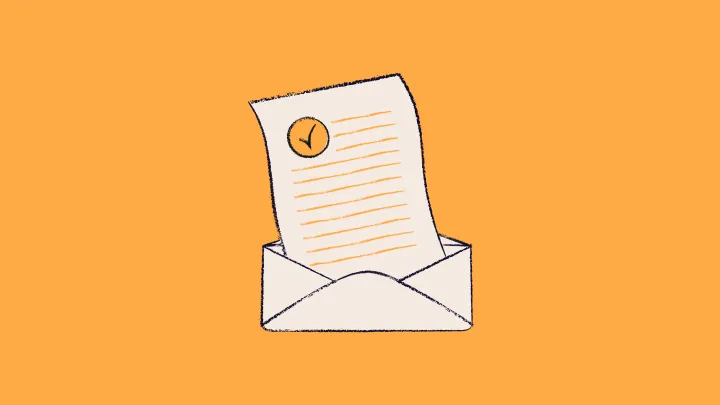Investigation meetings: a guide for HR leaders + free template

Investigation meetings are one of the most difficult and painful HR processes a small business will ever have to navigate.
No one wants to point fingers, grill people, and make your peers and co-workers out to be the villain.
However, a solid disciplinary investigation meeting process helps make things fair, transparent and legal within your organisation.
Having guided small businesses through employee incident investigations before, I can tell you that these things are not just a formality. They are essential in gathering information, understanding the perspectives of all parties concerned, and making informed decisions when the need arises.
I’d like to go into the intricacies of why investigation meetings are necessary, and how to conduct one. I’ll cover the rights of employees during this process, and the follow-up procedures that should take place afterwards. The steps in this guide, along with our investigation meeting template, will give you everything you need to handle investigation meetings fairly and efficiently.

When an investigation meeting is necessary
Investigation meetings are delicate situations that are hard to stop once they start. Knowing when an investigation is needed and when to start one can be tricky.
I will say this: once a workplace issue arises, the worst thing you can do is ignore it. Sweeping it under the rug will only make it worse. There is no faster way to create a toxic work environment. Trust me.
Addressing these issues promptly isn’t just about doing things by the book - it’s about making your workplace safe, respectful and protective of your team members. You owe them that much respect.
Identifying the need for an investigation meeting
Recognising certain signs or behavioural patterns is the first step to determining whether a disciplinary investigation meeting is necessary.
Actions or attitudes that go against company policy, repeated complaints about the same issue, or serious allegations with legal consequences are all grounds for an investigation, and should not go unaddressed.
As an HR professional, it’s your job to identify these signs, assess how serious the situation is, and get to the bottom of things.
Remember, the goal here is not to punish, but to understand. It’s about gathering the facts, hearing out the perspectives of the parties involved, and ensuring fair treatment.
Preparing for an investigation meeting
Once you’ve determined an investigation meeting needs to happen, the next step is to set the stage and prepare.
This involves gathering up all the relevant facts about the issue, making a list of questions to guide the conversation and get clarity, and informing all employees at the meeting of their rights.
Gathering information for your investigation meeting
First up, gather any relevant facts and information. That includes any written complaints, emails and any other documents related to the allegations in question.
This is also the stage where you would speak to employees who have relevant information about the case, or who even saw the misconduct themselves. The goal here is to get as clear, objective, and accurate a picture of the situation as possible, and gather the facts as they are.
Preparing investigation meeting questions
After you have all the pertinent info you need, the next phase is to prepare a list of questions for the investigation meeting. These questions should be open-ended and encourage in-depth responses.
For example, instead of asking "Did you violate our company policy?", try rephrasing it as “Can you describe our company policy and how you apply it in your role?”
Questions like that open a dialogue and avoid baiting the employee towards a specific answer.
Informing the employee
Finally, the employee needs to be informed the investigation meeting is taking place.
Give them details about the allegations set against them, the purpose and objective of the meeting, and what rights they have during the investigation process.
The employee should be given enough notice of the meeting to prepare and find a colleague or trade union representative to accompany them.
Remember also to reassure the employee that whatever happens in the meeting is confidential and stays between the four walls of the room.
Conducting the investigation meeting
The day arrives. You and the involved parties gather in a room to discuss the incident. The investigation meeting process is a delicate one that requires fairness, transparency and professionalism.
Here are the general steps involved in the investigation meeting process:
1. Opening the meeting
Make it clear that this is an investigation meeting, not a disciplinary meeting. You're not here to punish them, you're just here to understand what happened. Explain the goal is to gather the facts and remind them of their right to be accompanied and to confidentiality.
2. Presenting the allegations
Lay out the allegations and areas of concern in detail, including specific incidents and dates, along with any evidence. This brings clarity so that the employee can understand what they are being accused of, and have a chance to respond.
3. Allowing the team member to respond
There are always two sides to every story. Allow the employee to explain themselves and hear what they have to say. Listen carefully, and take notes to refer back to for future reference.
4. Asking the investigation meeting questions
Use the questions you prepared and clarify any inconsistencies in the team member’s version of events and clarify unclear points in their account. The questions should be open-ended and non-judgmental and should seek to gather the facts rather than interrogate.
You're likely to get further here by presenting the meeting as an opportunity for the employee to speak on their behalf, rather than by roasting them on a grill with pointed questions.
Getting a qualified and impartial HR Advisor to conduct your investigation meetings
If you’re a small business without an HR team, it can be indispensable to have someone on-hand who knows the ins and outs of the disciplinary process and can handle the investigation meeting with the care it deserves.
Enlisting an HR expert like CharlieHR’s team can provide you with:
- Expert advice: HR advisors can offer their expertise and fill gaps in your knowledge that might otherwise cause complications in the investigation process. They can help you ensure the investigation is conducted fairly and following the law. If you prefer, they can even conduct the investigation meeting on your behalf.
- Help with writing and reviewing documents: Having accurate and comprehensive documentation is central to ensuring the investigation goes well. The HR advisor can help you write and review any related documents, and make sure they’re legally compliant and error-free.
- Follow-up actions after the investigation: Once the investigation is over and done with, the HR professional can advise you on whether further disciplinary action or dismissal is in order, based on the investigation’s findings.

Navigating investigation meetings with confidence
Having a structured process for conducting employee investigation meetings helps make sure that all parties have a chance to present their version of events, that appropriate action is taken where needed, and everyone is treated fairly.
That said, overseeing these meetings is a complex and challenging affair that’s easy to get wrong. That’s where HR advisors like me come in.
With the help of CharlieHR’s HR Advice service, I and my team of HR experts can give you sound and accurate HR advice at a fraction of the cost of hiring a lawyer. Our HR advice service will help guide you through disciplinary procedures and make sure the situation is tied up neatly, giving you peace of mind.
Take the stress out of the investigation meeting process, and book a call with our HR advice team today.
Or, if you need help with automating your HR processes and saving time on admin, you may be interested in Charlie's HR software.

Want to find more HR templates like this one?


